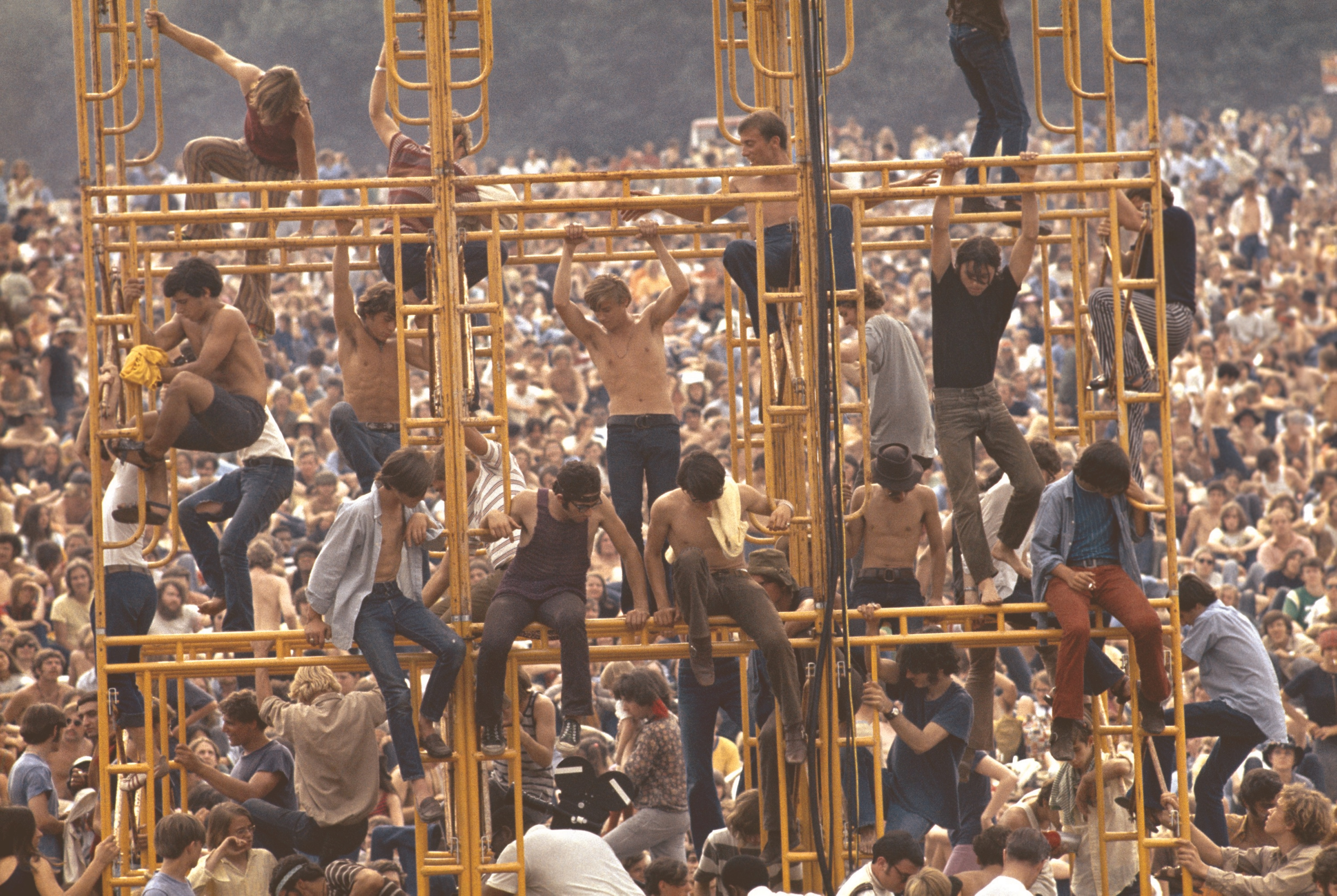
Woodstock: Three Days That Defined a Generation turns to archival footage to celebrate the 50th anniversary of the legendary concert.
Woodstock was the brainchild of Michael Lang, Artie Kornfeld, Joel Rosenman, and John P. Roberts. What’s so fascinating is that this juggernaut grew out of plans to open a recording studio in Woodstock, N.Y. Things changed and soon they would plan for one of the hugest weekends in history. Think about it. Roughly one month after man would land on the moon, some 400,000 would find themselves on Max Yasgur’s 600-acre farm. Some 32 acts who would go onto perform during Woodstock, billed as “An Aquarian Exposition: 3 Days of Peace & Music.” It would go down as arguably one of the great events in musical history.
Roberts and Rosenman were operating Media Sound in Manhattan during the late 1960s. Lang and Kornfield reached out to them when they were looking into building the aforementioned recording studio. Plans for a studio would fall through while planning for a concert would get underway. A proposed site at the Mill Industrial Park in Wallkill, N.Y. would be turned down. All eyes would eventually turn to Yasgur’s farm. The rest–as they say–is history. What was expected to be a crowd of 50,000 would turn into an estimated 500,000 people.
This isn’t the film you want if you’re looking to relive the big weekend. Nope, that film already took home the Oscar. What director Barak Goodman and co-director Jamila Ephron give us is archival footage spliced in with interviews. Their focus is on the people who came to celebrate love. For the film, it works. After all, this is a major concert that would change the culture! Some of the bands would come off with a bigger following than before the August weekend. Some musicians would kick themselves for passing up the opportunity. Could you blame them at the time?
What we get is a number of footage that has never seen the day of light before. A lot of what the documentary seeks to do is tell the story of what was going on in the months before Woodstock. There is also the stories of the people who attended. What led them to attend over the weekend? These were people who choose peace and love. Having their insight does certainly provide a refreshing change of focus from the musicians themselves. Then there’s a look back at the 1960s social and political climate. Sex, drugs, and rock and roll! This takes up quite a bit of the focus, including the organizers’ backgrounds.
One could look at the 1960s political climate and see much of the same things happening today. What’s taking place today is a completely different animal with hatred being enabled by the current administration. Women’s rights. LGBTQ rights. Climate change. The list goes on and on. Can we look to the past in hopes of not making the same mistakes again? Or can we look to the past for reasonable solutions? What certainly makes today different is the technological advances.
Woodstock: Three Days That Defined a Generation focuses less on the event itself but rather on the lead-up to a moment that would change rock and roll.
DIRECTORS: Barak Goodman, Jamila Ephron
SCREENWRITERS: Barak Goodman & Don Kleszy



